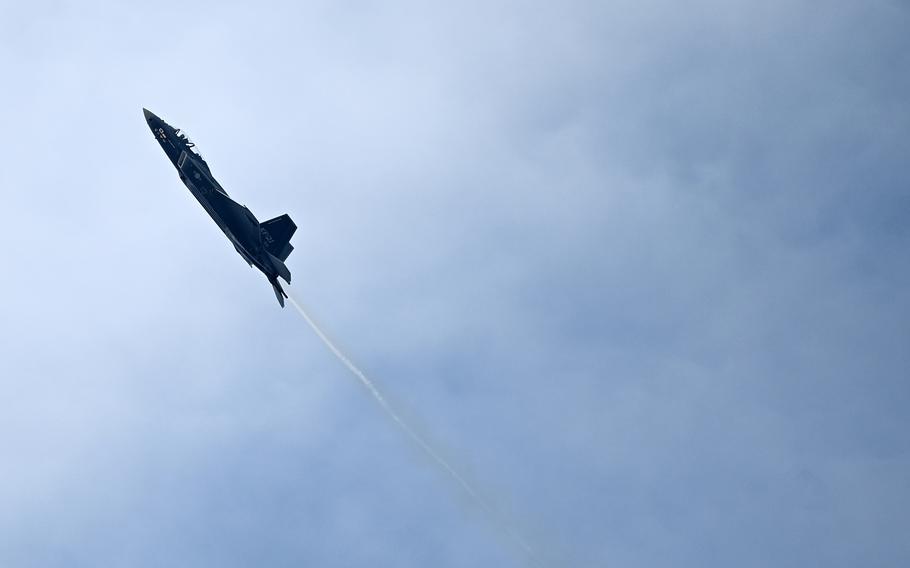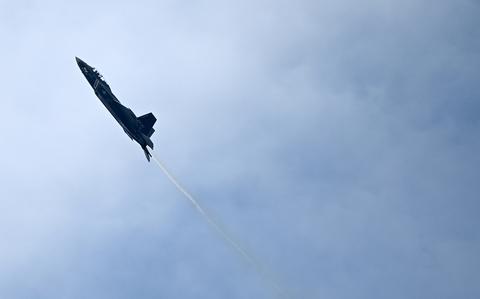
A South Korean air force KF-21 Boramae conducts an air demonstration during the Seoul International Aerospace and Defense Exhibition at Seoul Air Base, South Korea, Oct. 18, 2023. (Eric Burks/U.S. Air Force)
South Korea’s Defense Ministry has proposed its largest military budget increase in seven years, seeking $47.6 billion for the next fiscal year to help counter North Korea’s missile threats.
The request, submitted to lawmakers on Tuesday, represents an 8.2% increase from the previous year, the ministry said in a news release Wednesday.
About $15 billion would go toward research and development and weapons systems aimed at deterring Pyongyang’s missile program, a 13% rise from last year.
South Korea relies on a three-stage defense strategy: preemptive strikes against North Korean military assets, intercepting incoming missiles and retaliating against senior leadership, including Kim Jong Un.
Operational costs, including training drills and improved meals and living conditions for service members, were estimated at $34 billion, up 6% from last year.
Roughly $252 million would be allocated to artificial intelligence-based manned and unmanned combat systems to “respond to future warfare changes,” the ministry said.
The budget proposal, it added, will “raise smart and strong troops that will win in the 21st century future warfare.”
Lawmakers are expected to vote on the proposal at least a month before the next fiscal year begins on Dec. 2.
The announcement follows President Lee Jae Myung’s pledge to boost defense spending during his first state visit to the White House last week.
South Korea’s defense budget rose 3% this fiscal year and accounts for about 2.32% of its gross domestic product.
U.S. Defense Secretary Pete Hegseth has urged Pacific allies to spend at least 5% of GDP on defense.
“NATO members are pledging to spend 5% of their GDP on defense …,” he said in May at the Shangri-La Dialogue in Singapore. “It doesn’t make sense for countries in Europe to do that while key allies in Asia spend less on defense in the face of an even more formidable threat, not to mention North Korea.”
